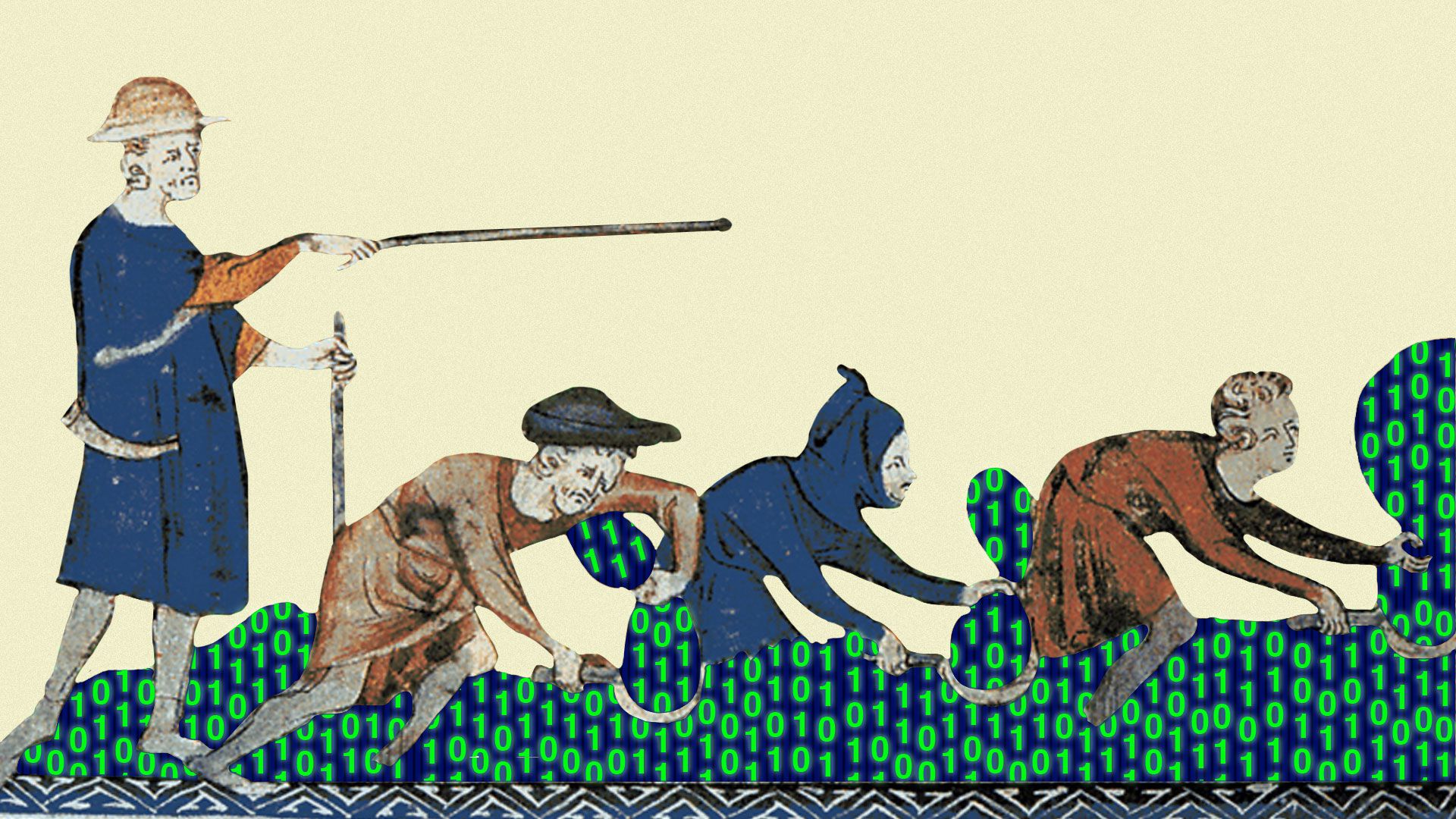Serfs in the era of artificial intelligence

Behind the revolution, AI has grown a lower class of workers, invisible to most of us: thousands of low paid people in the US and around the world who carefully parse millions of pieces of data and images, helping to fill powerful AI algorithms. Critics call them "new serfs."
Why this is important: these workers — people who mark up data so that computers can understand what they are looking at — began to attract the interest of social researchers and other experts. The latter say that these “markers” can at least partially explain the riddle of American income inequality - and, perhaps, how to solve it.
Context: We think that AI is all-knowing, but it’s not quite so. AIs in self-managing machines, for example, based on sensors, can make fantastically detailed street images and recognize hazards of all kinds. AI can feed any situation behind the wheel, and she will be able to handle it. But companies developing self-managed technologies need people to say what AI looks like: trees, stop lights or pedestrian crossings.
- Without human markup , AI is stupid and cannot distinguish a spider from a skyscraper.
- But this does not mean that companies pay good money to the rammers. In fact, they are paid as the lowest paid workers.
- US companies claim to pay such workers from $ 7 to $ 15 per hour. And, apparently, this is the upper limit of payment: such workers are attracted to crowdsourcing platforms. In Malaysia, for example, an average payment of $ 2.5 per hour
A broader view: the winners are AI companies, most of which are in the USA, Europe and China. The losers are workers from rich and relatively poor countries who pay little.
How companies manage layout makers : Nathaniel Gates, director of Alegio, a Texas-based crowdsourcing platform, says his company deliberately reduces work to the simplest, most routine tasks possible. And while this reduces the chances of workers improving their skills — and getting higher pay, Nathaniel Gates argues that at least they “open doors that were previously closed to them.”
- “ We are creating digital jobs that did not exist before. And guys come to these places, whom automation has driven out from farms and factories, ”Gates told Axios.
However, some experts say that such practices create inequality in an AI economy.
- In a new book, The Ghost Job, by Mary Gray and Siddharth Suri from Microsoft Research, they argue that employees who are involved in markup are a prominent part of the most dynamic industries.
- “ Economists have not yet figured out how to evaluate this market,” says Gray Axios. "We evaluated such work as long-term goods (which benefit over time - ed.), But in reality this is a collective mind - this is where the main value is."
James Cham, a partner in the Bloomberg Beta Venture Fund, thinks that AI companies are playing the difference between the low pay of “scribers” and the huge, long-term profit from the products that come out of this work.
- "Companies get long-term benefits, while workers are paid only once. They are paid as serfs, paying only the cost of living. And landlords get all the profits because the system is so arranged," Cham told Axios.
- "This is one big speculation"
What's next: Gray says that the market cannot itself increase the salaries of workers marking up data.
- In an era when outdated political and economic rules do not work, and societies wear out, experts need to figure out what should be the earnings of such workers.
- What people pay is "the question of morality, not just economics," concludes Gray.
Deepen: Markup will be the billionth market by 2023
Translation: Vyacheslav Perunovsky
Edited by: Alexey Ivanov / ponchiknews
Community: @Ponchiknews
')
Source: https://habr.com/ru/post/454248/
All Articles